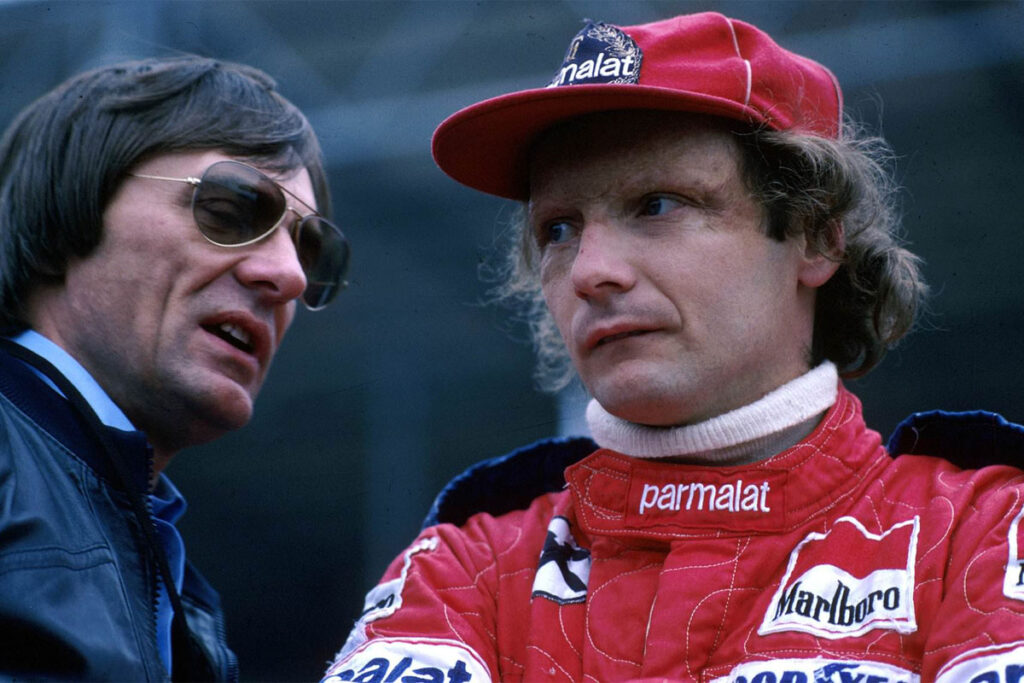Early Life and Entry into Racing
Andreas Nikolaus “Niki” Lauda was born on February 22, 1949, in Vienna, Austria. Born into a wealthy family, Lauda’s early life was marked by privilege and expectations that he would follow a traditional path into business. However, Lauda’s passion for cars and racing overshadowed these familial expectations, setting him on a path that would define his life and leave an indelible mark on the world of motorsport.
From an early age, Lauda displayed an acute interest in mechanics and cars. Despite his family’s disapproval, he pursued his passion with determination. His entry into racing was unconventional; Lauda took out a bank loan, using his family’s name as collateral, to buy his way into a Formula Vee car. His determination and willingness to take financial risks underscored his belief in his potential as a racing driver.
Rise to Prominence
Lauda’s career began in earnest in the late 1960s and early 1970s, a period of rapid development and intense competition in Formula One. His first significant break came in 1971 when he joined the March team, though the cars were not competitive enough to showcase his true talent. Undeterred, Lauda continued to push himself, and his big break came when he secured a deal with the BRM team in 1973.
Lauda’s performances at BRM caught the eye of Enzo Ferrari, the founder of the Ferrari team, who saw the potential in the young Austrian. In 1974, Lauda joined Ferrari, marking the beginning of a period of significant achievement. With Ferrari, Lauda’s methodical approach to driving and car development paid off. His attention to detail and technical feedback played a crucial role in improving the performance of Ferrari cars.
World Championships and Rivalries
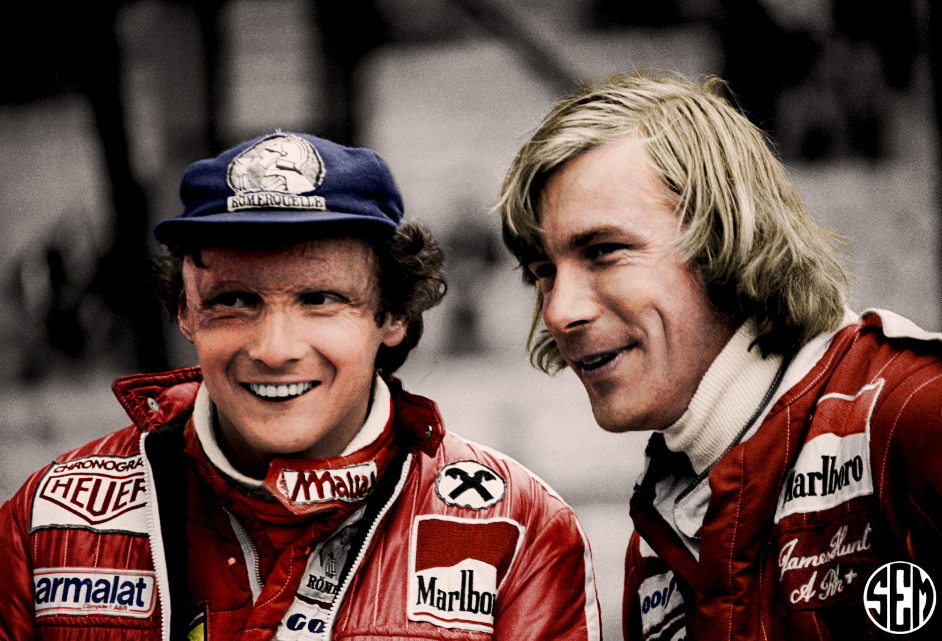
Lauda’s breakthrough came in 1975 when he won his first Formula One World Championship. He dominated the season, securing five wins and demonstrating a level of consistency and professionalism that set him apart from many of his contemporaries. His rivalry with James Hunt, the charismatic British driver, became one of the most celebrated in the sport’s history.
The 1976 season was pivotal in Lauda’s career, marked by both triumph and tragedy. Lauda started the season strongly, but his career nearly ended on August 1, 1976, during the German Grand Prix at the Nürburgring. A horrific crash left him with severe burns and injuries. Remarkably, Lauda made an astonishing return to racing just six weeks later, missing only two races. His resilience and determination to get back behind the wheel inspired many and cemented his status as a legend in the sport.
Despite his incredible comeback, Lauda narrowly lost the championship to Hunt in 1976. However, he reclaimed his title in 1977, demonstrating his ability to overcome adversity and return to the pinnacle of the sport.
Life Beyond Ferrari

After his success with Ferrari, Lauda briefly retired in 1979, citing a lack of motivation to continue racing. However, his hiatus was short-lived. In 1982, he made a surprising return to Formula One with McLaren. The second phase of his career saw him competing at a high level once again, culminating in winning his third World Championship in 1984. This victory was particularly sweet as he narrowly defeated his teammate, Alain Prost, by half a point, the smallest margin in Formula One history.
Lauda’s third championship was a testament to his enduring talent and competitive spirit. He finally retired from racing in 1985, but his connection to the sport remained strong.
Post-Racing Career
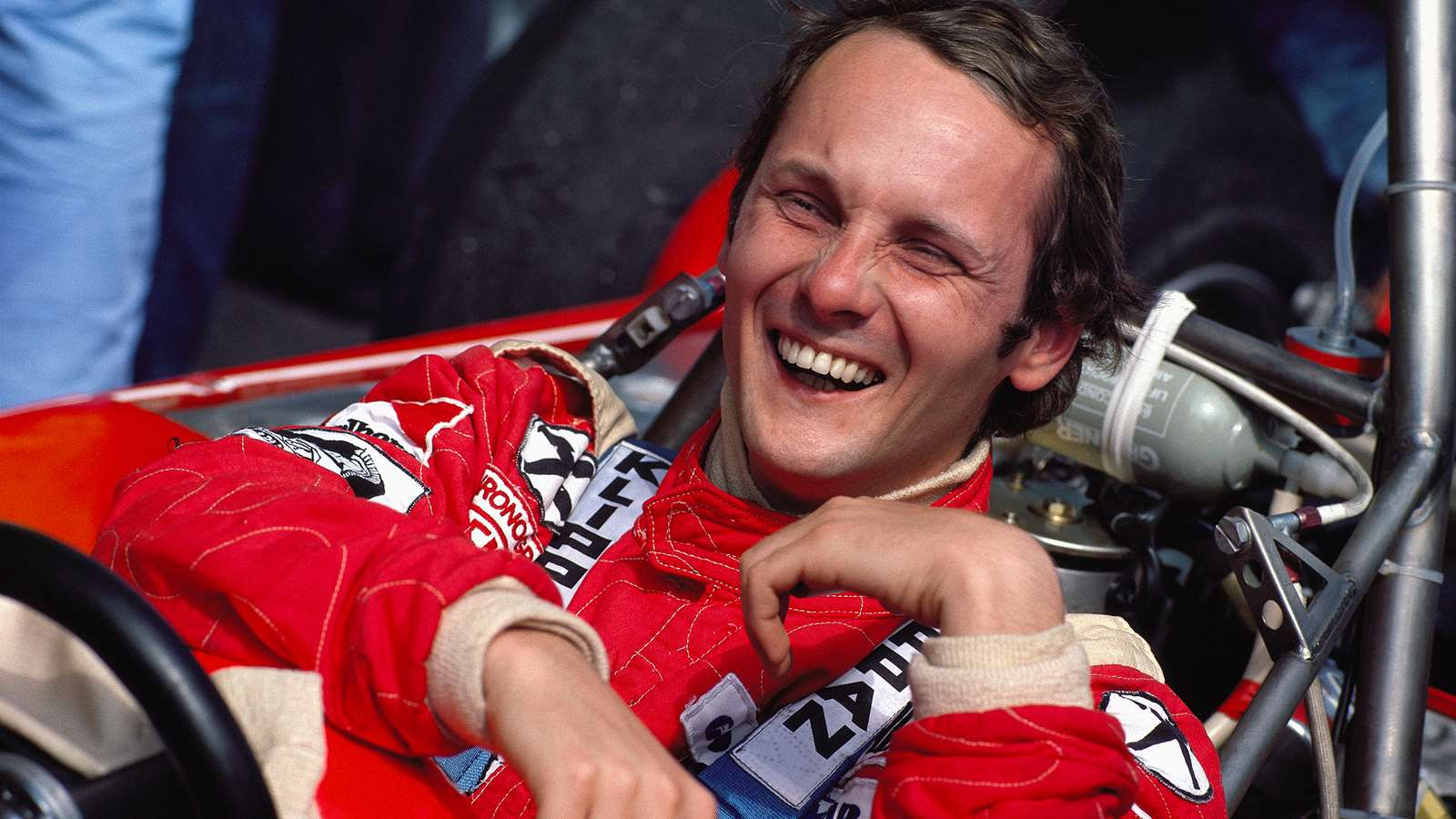
Following his retirement, Lauda’s involvement in Formula One continued in various capacities. He founded and managed two airlines, Lauda Air and Niki, showing the same meticulous attention to detail and determination that had characterized his racing career. His entrepreneurial ventures were challenging, especially with Lauda Air experiencing a tragic crash in 1991. Nonetheless, Lauda’s resilience shone through as he continued to build his business empire.
Lauda also played significant roles in several Formula One teams. In the 1990s, he served as a consultant for Ferrari, helping to lay the groundwork for the team’s future successes. Later, he took on executive roles with Jaguar and, more prominently, with Mercedes-Benz. As a non-executive chairman of the Mercedes-AMG Petronas Formula One Team, Lauda was instrumental in bringing Lewis Hamilton to the team, a move that led to an era of dominance in the sport.
Legacy and Impact
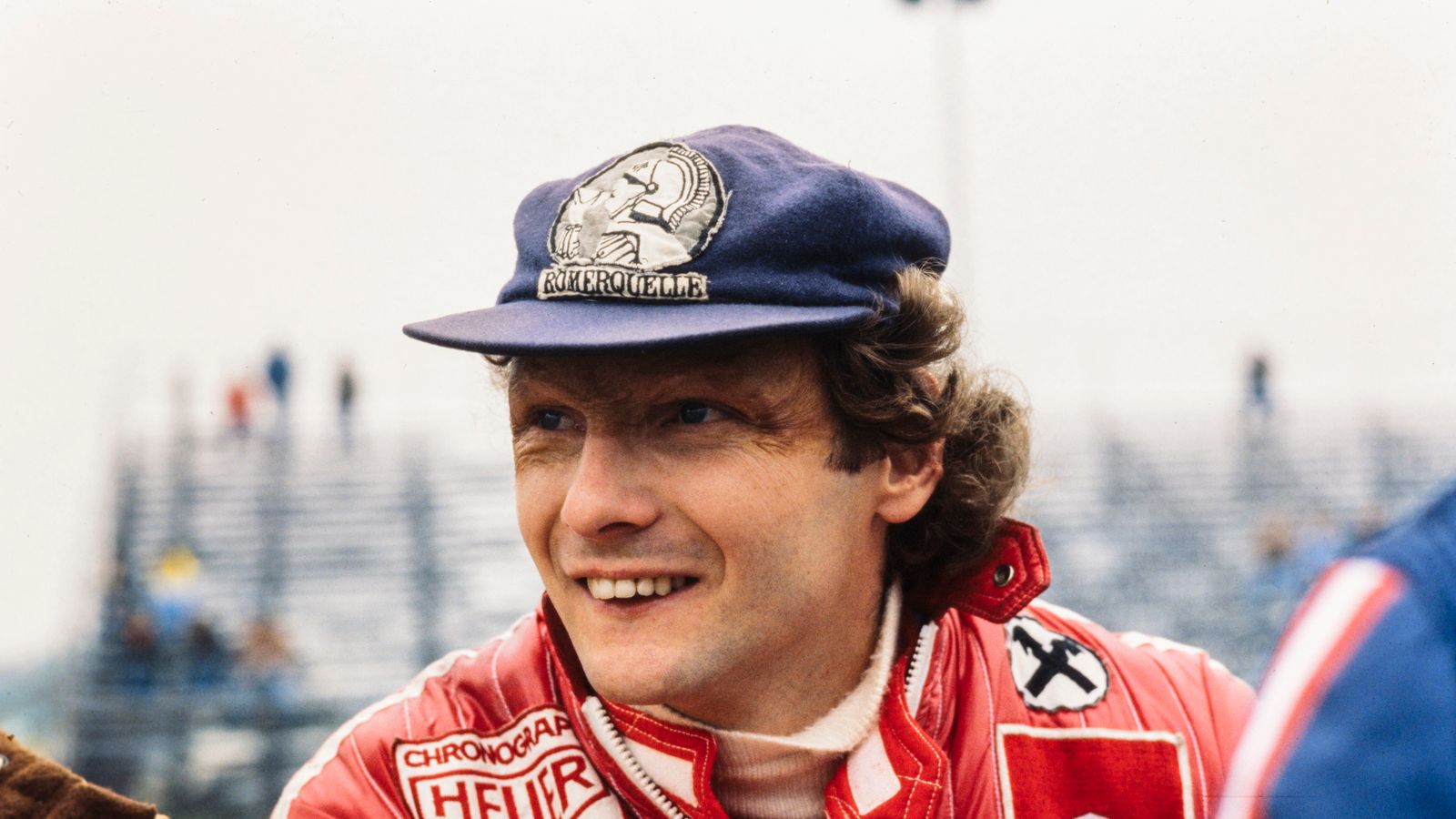
Niki Lauda’s legacy extends beyond his three World Championships and his business ventures. He is remembered as a driver who combined technical acumen with an unyielding competitive spirit. His approach to racing was analytical and methodical, often working closely with engineers to improve car performance. This approach earned him the nickname “The Computer” from his peers and highlighted the importance of driver feedback in car development.
Lauda’s remarkable comeback from his near-fatal accident at the Nürburgring stands as one of the greatest stories of resilience and determination in sports history. His willingness to return to racing despite the physical and psychological scars left by the accident exemplifies his extraordinary character. This story was famously dramatized in the 2013 film “Rush,” directed by Ron Howard, which brought Lauda’s story to a new generation of fans.
Off the track, Lauda’s contributions to aviation and his roles in Formula One management demonstrated his versatility and ability to excel in different fields. His candid and straightforward personality made him a respected figure in the paddock and beyond. He was known for his no-nonsense approach and was often sought after for his insights into the sport.
Personal Life
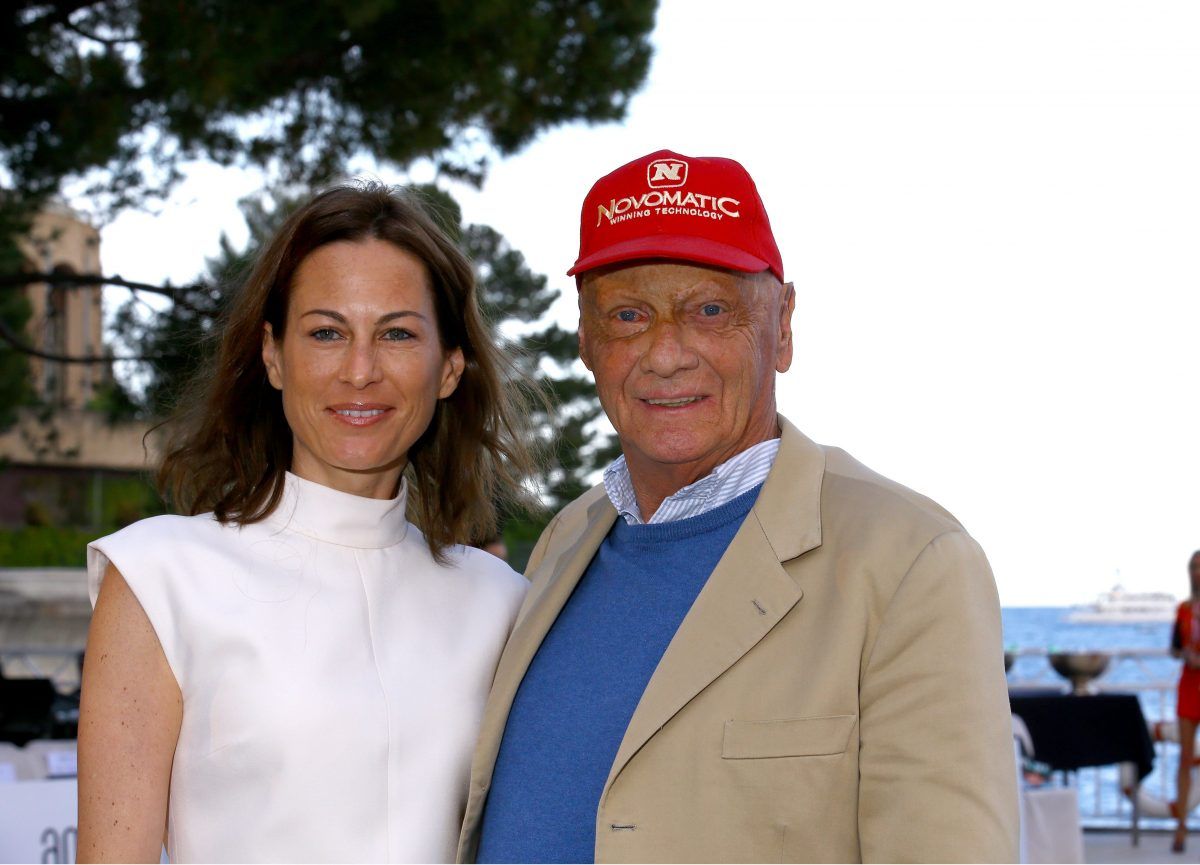
Niki Lauda’s personal life was marked by both triumphs and challenges. He was married twice and had five children. His first marriage to Marlene Knaus produced two sons, Mathias and Lukas. Mathias followed in his father’s footsteps to become a racing driver, while Lukas became Mathias’s manager. Lauda’s second marriage to Birgit Wetzinger, a flight attendant for his airline, was notable for Birgit’s selfless act of donating a kidney to Lauda in 2005 after his previous transplant, donated by his brother, failed.
Lauda’s health issues were a recurring challenge throughout his life. The injuries from his 1976 crash left him with lifelong health problems, including lung damage from inhaling toxic fumes. Despite these challenges, Lauda remained active in his professional and personal life, demonstrating remarkable resilience.
Final Years and Death

In the final years of his life, Lauda continued to be a prominent figure in Formula One, contributing to the success of the Mercedes team. His wisdom and experience were invaluable assets to the team, and his presence was a stabilizing influence.
Niki Lauda passed away on May 20, 2019, at the age of 70. His death was mourned across the world of motorsport and beyond. Tributes poured in from fellow drivers, teams, and fans, all recognizing the incredible impact he had on the sport and his remarkable life story.
Conclusion
Niki Lauda’s life is a testament to the power of resilience, determination, and excellence. From his early struggles to break into racing, through his championship victories and near-fatal crash, to his successful business ventures and roles in Formula One management, Lauda exemplified what it means to be a champion both on and off the track. His legacy continues to inspire and influence the world of motorsport, and his story remains one of the most compelling in the history of sports. Niki Lauda will forever be remembered not just as a three-time World Champion, but as a symbol of courage and perseverance in the face of overwhelming odds.
FAQs
Who was Niki Lauda?
Niki Lauda was an Austrian Formula One driver, aviation entrepreneur, and motorsport executive. He won the Formula One World Championship three times (1975, 1977, and 1984) and is widely regarded as one of the greatest drivers in the history of the sport.
What is Niki Lauda best known for?
Niki Lauda is best known for his three Formula One World Championships and his remarkable comeback after a near-fatal crash during the 1976 German Grand Prix at the Nürburgring. His rivalry with James Hunt, his contributions to Ferrari and McLaren, and his role in the Mercedes-AMG Petronas Formula One Team are also significant aspects of his legacy.
What happened during Niki Lauda’s crash in 1976?
On August 1, 1976, Lauda suffered a severe crash at the Nürburgring, which left him with critical injuries, including severe burns and lung damage. Despite his injuries, he made an astonishing return to racing just six weeks later, missing only two races of the season.
How many World Championships did Niki Lauda win?
Niki Lauda won three Formula One World Championships. He secured his titles in 1975 and 1977 with Ferrari and in 1984 with McLaren.
How did Niki Lauda contribute to Formula One after retiring as a driver?
After retiring as a driver, Lauda remained active in Formula One in various capacities. He served as a consultant for Ferrari, took on executive roles with Jaguar, and played a crucial role as a non-executive chairman of the Mercedes-AMG Petronas Formula One Team, where he was instrumental in signing Lewis Hamilton.
Did Niki Lauda have any involvement in aviation?
Yes, Niki Lauda founded two airlines: Lauda Air and Niki. He was actively involved in their operations and demonstrated the same meticulous attention to detail that characterized his racing career. Lauda Air faced challenges, including a tragic crash in 1991, but Lauda’s resilience helped him navigate these difficulties.
What is the significance of the movie “Rush” in relation to Niki Lauda?
The 2013 film “Rush,” directed by Ron Howard, dramatizes the 1976 Formula One season, focusing on the intense rivalry between Niki Lauda and James Hunt. The movie highlights Lauda’s incredible comeback following his near-fatal crash, bringing his story to a wider audience.
What health challenges did Niki Lauda face throughout his life?
Lauda faced several health challenges, primarily stemming from his 1976 crash. He suffered severe burns and lung damage. Later in life, he underwent two kidney transplants, one donated by his brother in 1997 and another by his second wife in 2005. In 2018, he underwent a lung transplant due to complications from his previous injuries.
What was Niki Lauda’s relationship with Ferrari?
Niki Lauda had a significant relationship with Ferrari, winning two of his three World Championships with the team. He joined Ferrari in 1974 and played a crucial role in developing their cars, helping the team achieve competitive success in the mid-1970s.
How did Niki Lauda’s personality and approach impact his career?
Lauda was known for his analytical and methodical approach to racing, earning him the nickname “The Computer.” His attention to technical details and feedback to engineers greatly improved car performance. His straightforward, no-nonsense personality made him a respected figure both on and off the track.
Who were Niki Lauda’s family members?
Niki Lauda was married twice and had five children. He had two sons, Mathias and Lukas, with his first wife, Marlene Knaus. Mathias became a racing driver, while Lukas managed Mathias’s career. Lauda had twins, a boy and a girl, with his second wife, Birgit Wetzinger, who also donated a kidney to him in 2005.
When did Niki Lauda pass away?
Niki Lauda passed away on May 20, 2019, at the age of 70. His death was widely mourned in the motorsport community and beyond, with many paying tribute to his remarkable life and achievements.
What is Niki Lauda’s legacy in motorsport?
Niki Lauda’s legacy in motorsport is defined by his resilience, determination, and excellence. His comeback from a near-fatal crash, his multiple World Championships, and his contributions as a team executive have left an indelible mark on the sport. Lauda is remembered as a symbol of courage and perseverance, inspiring generations of drivers and fans.
Did Niki Lauda write any books or memoirs?
Yes, Niki Lauda authored several books, including his autobiography “To Hell and Back” and “My Years with Ferrari.” These works provide insights into his career, personal life, and the challenges he faced.
What honors and awards did Niki Lauda receive during his lifetime?
Throughout his life, Niki Lauda received numerous honors and awards for his contributions to motorsport. These include being inducted into the International Motorsports Hall of Fame and receiving the Laureus World Sports Award for Lifetime Achievement. His legacy continues to be celebrated by the motorsport community and fans worldwide.


